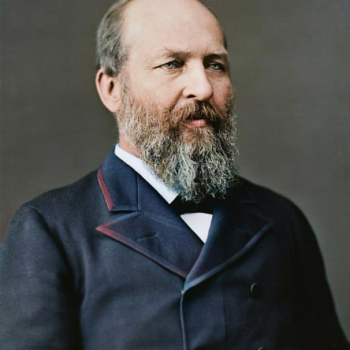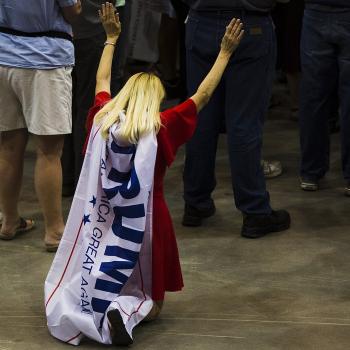Anxious Elections Past
The dust hasn’t even begun to settle on the 2020 election. What to say about it? According to the AP VoteCast survey, 81% of evangelicals voted for President Trump in 2020. A change of… zero percent from 2016.
On the other hand, it might not be true. VoteCast also pegged Muslim support for Trump at 35%, which would be a huge increase on 2016 and seems highly unlikely. I know some outlets are much better than others, but I’m taking pretty much all data except raw vote counts with a grain of salt. We should be more skeptical about all public opinion surveys going forward as well.
VoteCast also suggests that, once again, the more often one goes to church, the more often is one votes Republican. I presume that is why some Democratic state governments have placed limits on religious gatherings during the COVID-19 pandemic. If Americans go to church less often, they will be less likely to vote Republican. Correspondingly, that’s why Republican politicians want the churches open. I hope you realize that I’m kidding. What I want to know is whether or not attending services on Zoom makes one more likely to vote Republican.
In terms of the 81%, every four years observers point to the fact that young evangelicals are more politically progressive than their more senior counterparts. My hunch is that instead of becoming Democrats, most stop identifying as evangelicals (or stop being whatever it is that pollsters think makes someone an evangelical).
In any event, the fact that 81% of evangelicals vote Republican is really only a problem if one doesn’t like the Republican Party. Or if one thinks that evangelicals are voting Republican for various nefarious and immoral reasons. Lots of demographic groups in the United States lean heavily one way or the other. That’s not a problem on the face of it. People are too quick to assign facile explanations for this phenomenon. One part of the equation is that since Barack Obama’s first campaign, Democrats have made no concerted effort to win evangelical votes.
One thing I’ve done since the election is to look back on our days-after-the-vote posts about the 2012 and 2016 elections. Here’s a taste.
Undeniably, any Republican or conservative movement has to acknowledge the demographic shifts currently in progress if it wants to survive, and above all that has to mean recognizing the ethnic transformation. A party based wholly on the support of older, white, rural and small-town America is destined for the scrapheap – especially if white America is beginning to secularize.
I am going publish a list of why I am glad that this election is over:
- No more political phone calls on my answering machine. As a resident of Pennsylvania, I received seven robo-calls yesterday morning alone. One of them even quoted Edmund Burke. I was quite impressed with this until I realized that the quote was taken out of context.
- The “Mormon Moment” is over. Hopefully this election has made Mormonism part of the religious mainstream in America. Whatever the case, Mormonism did not play a major role in this election, although it has allowed several scholars, writers, bloggers, and pundits to build careers and land book contracts.
Trump listened—or at least pretended to listen. “The forgotten men and women of our country will be forgotten no longer,” he declared at 3 a.m. this morning in his victory speech. There is much to despise about Trump, but he did what the educated elite didn’t. It’s time for the rest of us to listen to the forgotten and try to understand their despair.
It could be that most of my friends and relatives are not really minions of Satan.
It could be that they voted for Donald Trump in roughly the same numbers that white evangelicals voted for Mitt Romney and George W. Bush. Voting is largely habitual. Most of those who voted Republican last time around were going to vote Republican this time around.












